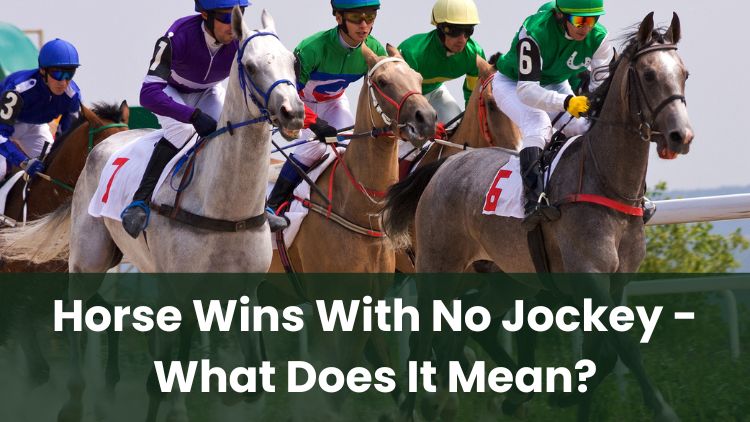
Seeing a horse cross the finish line without its jockey often raises many questions, even if you don't follow racing closely. Can a horse actually win if there’s no one in the saddle? And what happens to your bet in this situation?
This article looks at how UK racing rules handle these scenarios, what you should expect if you have placed a bet, and why it matters. By understanding these guidelines, you’ll feel more prepared for some of the unusual moments racing can throw up.
Counting the Result: Can a Horse Win Alone?
According to UK horse racing rules, a horse must have its jockey on board from the start right through to the finish for its performance to count. If the jockey falls off, the horse is classed as a “loose horse.” No matter how fast it runs or if it finishes ahead of others, it will not be declared the winner.
Stewards, who are the officials for the event, only include horses that finished with their jockeys in the official results. When you see a loose horse cross the line first, it simply doesn’t count towards the placing. Instead, the first horse to complete the race with a jockey will be the one recognised in the results.
Any bets you’ve placed on a horse that loses its jockey are settled based on the official outcome provided by the race stewards. A loose horse is ignored for betting purposes, no matter how eye-catching it might be to see it running on alone. Checking your bookmaker’s terms may be a good idea, especially if you’re ever unsure about specifics in cases like this.
The same approach is used consistently so everyone, whether racing fans or bettors, knows where they stand after one of these curious incidents.
Betting Impact When a Jockey Falls Off
If your chosen horse loses its jockey mid-race, the horse is immediately classed as a non-finisher. As explained earlier, bookmakers use only the official results when deciding whether a bet has won or lost. Unfortunately, this generally means your stake will not be returned on a “win” or “each-way” bet.
Promotions or insurance offers that cover these scenarios are rare, but may sometimes be available; always check the bookmaker’s terms to see if they apply.
Different betting markets can have their own rules, so reviewing the details before you place a wager is important. Relying on strategy or hoping for a certain outcome cannot change what happens when a horse becomes a loose horse.
Common Reasons Why Jockeys Fall
There are several reasons a jockey may come off during a race, most of which come down to how lively and unpredictable horse racing can be.
Horses might stumble, especially on tricky ground or after rain. Surfaces that change from course to course can make things harder for both horse and jockey. Tight turns and crowded patches, where horses jostle for position, make it more likely for mishaps to happen.
Jumps racing, like steeplechases and hurdling, brings a higher chance of falls compared to flat races, since fences and hurdles present extra challenges. Sometimes, a horse might spook because of an unexpected sound, shadow, or sudden movement around it. Rarely, issues such as broken tack or a saddle slipping can cause problems as well.
It’s because of these risks that jockeys are so well trained, and why staff are always close at hand at UK racecourses to respond quickly when needed.
Having a good understanding of these situations means you’ll be better prepared next time you’re watching or having a bet. You now know what a loose horse means for the race and your stake, leaving you ready to follow or enjoy horse racing with a bit more understanding.
*All values (Bet Levels, Maximum Wins etc.) mentioned in relation to these games are subject to change at any time. Game features mentioned may not be available in some jurisdictions.
**The information provided in this blog is intended for educational purposes and should not be construed as betting advice or a guarantee of success. Always gamble responsibly.
